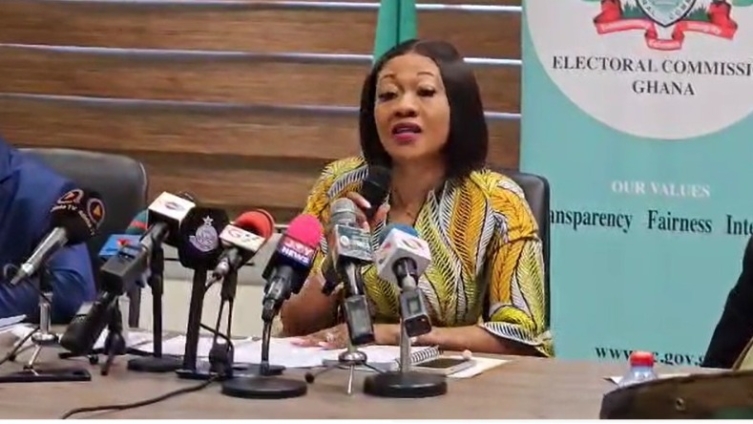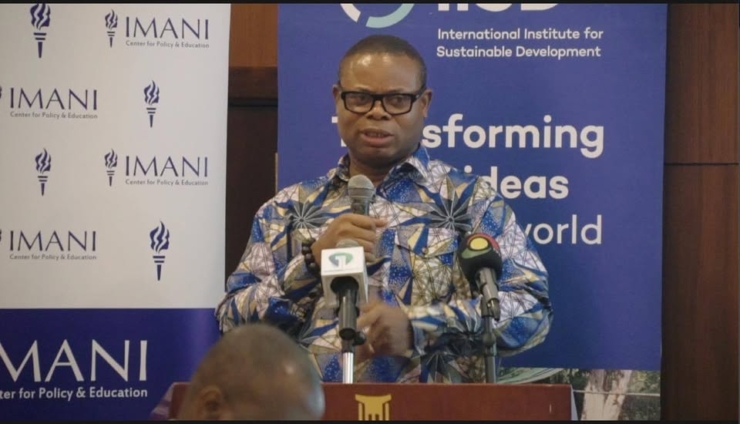Anambra Decides: Soludo Clinches Governorship Victory in 2025 Election

The 2025 Anambra State Governorship Election unfolded as a critical test for Nigeria's democratic credentials, marked by commendable organizational efforts from the Independent National Electoral Commission (INEC), robust security deployments, but also shadowed by widespread allegations of vote-buying and mixed voter turnout.
INEC, under the leadership of Chairman Professor Joash Ojo Amupitan, SAN, received significant praise from both international observers and civil society organizations (CSOs) for its transparent, efficient, and peaceful conduct. Key achievements highlighted included smooth logistical coordination, effective deployment of technology like the BVAS machine which performed seamlessly, and an impressive 98.8% Permanent Voter Card (PVC) collection rate out of 2,802,790 registered voters. Early arrival of materials and personnel, with voting commencing by 8:30 a.m. in many units, signaled a high level of preparedness. Despite initial reports of improved voter turnout compared to 2021, later observations by Senator Tony Nwoye and former Governor Peter Obi noted instances of voter apathy, particularly in commercial hubs like Awka and Onitsha where residents defied movement restrictions for daily business.
Security measures were extensive and well-coordinated, spearheaded by the Inspector-General of Police (IGP) Kayode Egbetokun and Deputy Inspector-General of Police (DIG) Benjamin Okolo, who was in charge of the Anambra elections. The Nigeria Police Force intensified air surveillance operations, led by CP Martins Nwogo of the Police Air Wing, complemented by ground troops, marine operatives, and tactical units. Strategic deployments effectively contained major security flashpoints across the state, including Onitsha, Ogbaru, Ekwulobia, Agulu, and Aguata LGAs. Security agencies, including the NSCDC, were lauded for their professionalism and neutrality, ensuring a largely calm and secure environment for voters.
However, the election was significantly marred by allegations of vote-buying. Various political figures, including Governor Chukwuma Soludo, Peter Obi, Nicholas Ukachukwu, George Moghalu, and Senator Victor Umeh, condemned the practice. Reports from polling units suggested inducements ranging from N5,000 to N30,000 per vote, with Governor Soludo even confidently stating he would win "landslide" even if opponents paid N100,000 per vote. The Economic and Financial Crimes Commission (EFCC) responded by arresting several individuals, including Emeka Ilokasia, Nwachuwu Loretta, and Emuka Chuwudi, for electoral malpractice, affirming their intent to prosecute offenders under Sections 121 and 127 of the Electoral Act 2022, which prescribe fines up to N500,000 or 12 months imprisonment. Despite these actions, the Resident Electoral Commissioner (REC) Elizabeth Agwu dismissed widespread vote-buying claims as rumors, demanding credible evidence.
The governorship race, featuring 16 candidates, largely distilled into a two-horse contest between the incumbent Governor Chukwuma Soludo of the All Progressives Grand Alliance (APGA) and Prince Nicholas Ukachukwu of the All Progressives Congress (APC). By the time results from 19 of the 21 local government areas were announced, Governor Soludo had secured a significant lead, winning nearly all the declared LGAs, with Ukachukwu only leading in his home LGA, Nnewi South. Notable polling unit results included Peter Obi losing his unit to the APC and George Moghalu losing his to APGA. Soludo's eventual victory solidified APGA's long-standing dominance in the state, continuing a trend of consecutive terms for governors from the party.
Several factors underpinned the election's outcome. APGA's deep-rooted popularity and history in Anambra, often referred to as the 'Igbo party,' provided a strong base for Soludo. His incumbency also offered a significant advantage. The state's unwritten but effective zoning arrangement, favoring the Southern senatorial zone (from which both Soludo and Ukachukwu hail), also played a role. Furthermore, religious politics, often a subtle but potent force, favored Soludo, a Catholic, whose deputy is the younger brother of the Anglican Bishop of Awka, effectively bridging the state's two dominant denominations. These combined elements ensured a clear path for Soludo's re-election.
Despite the challenges posed by vote-buying and fluctuating voter participation, the 2025 Anambra Governorship Election was broadly regarded by observers as a testament to improved electoral processes under INEC's new leadership, marking a significant milestone in Nigeria's ongoing democratic journey.
Recommended Articles
Tensions Rise as FCT Council Polls Approach: Police Impose Movement Ban Amidst Electoral Preparations

The FCT is set for Area Council elections on February 21, 2026, a critical test for INEC under the new Electoral Act, fe...
Electoral Showdown: Pressure Mounts on Senate for Real-Time Electronic Result Transmission

The ongoing debate over Nigeria's electoral reforms intensifies as the Social Democratic Party (SDP) and civil society o...
2027 Electoral Act in Crisis: Delays Spark Suspicion and Urgent Calls for Passage

Significant delays in amending Nigeria's 2022 Electoral Act are causing alarm among stakeholders, threatening preparatio...
Vote-Buying Scandal Ignites Ayawaso East: NDC Primary Plunges Into Disputed Chaos

Allegations of vote-buying during the Ayawaso East NDC parliamentary primary have sparked widespread condemnation and an...
Ghana rocked by Ayawaso East vote-buying scandal: NDC probe intensifies amid democratic integrity fears!

Ghana's Ayawaso East constituency is embroiled in controversy following alleged vote-buying during the NDC parliamentary...
Explosive Bribery Scandal Rocks Ghana's Ayawaso East Primary! Call for Annulment Amid Vote-Buying Fury

The National Democratic Congress (NDC) Ayawaso East parliamentary primary is embroiled in controversy following vote-buy...
You may also like...
When Sacred Calendars Align: What a Rare Religious Overlap Can Teach Us

As Lent, Ramadan, and the Lunar calendar converge in February 2026, this short piece explores religious tolerance, commu...
Arsenal Under Fire: Arteta Defiantly Rejects 'Bottlers' Label Amid Title Race Nerves!

Mikel Arteta vehemently denies accusations of Arsenal being "bottlers" following a stumble against Wolves, which handed ...
Sensational Transfer Buzz: Casemiro Linked with Messi or Ronaldo Reunion Post-Man Utd Exit!

The latest transfer window sees major shifts as Manchester United's Casemiro draws interest from Inter Miami and Al Nass...
WBD Deal Heats Up: Netflix Co-CEO Fights for Takeover Amid DOJ Approval Claims!

Netflix co-CEO Ted Sarandos is vigorously advocating for the company's $83 billion acquisition of Warner Bros. Discovery...
KPop Demon Hunters' Stars and Songwriters Celebrate Lunar New Year Success!

Brooks Brothers and Gold House celebrated Lunar New Year with a celebrity-filled dinner in Beverly Hills, featuring rema...
Life-Saving Breakthrough: New US-Backed HIV Injection to Reach Thousands in Zimbabwe

The United States is backing a new twice-yearly HIV prevention injection, lenacapavir (LEN), for 271,000 people in Zimba...
OpenAI's Moral Crossroads: Nearly Tipped Off Police About School Shooter Threat Months Ago
ChatGPT-maker OpenAI disclosed it had identified Jesse Van Rootselaar's account for violent activities last year, prior ...
MTN Nigeria's Market Soars: Stock Hits Record High Post $6.2B Deal

MTN Nigeria's shares surged to a record high following MTN Group's $6.2 billion acquisition of IHS Towers. This strategi...